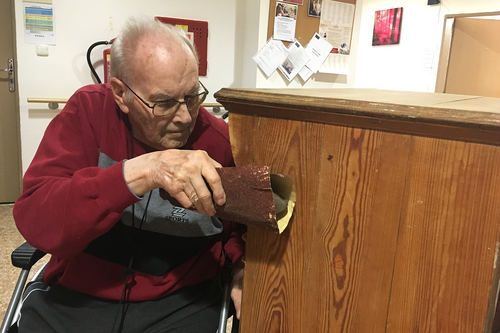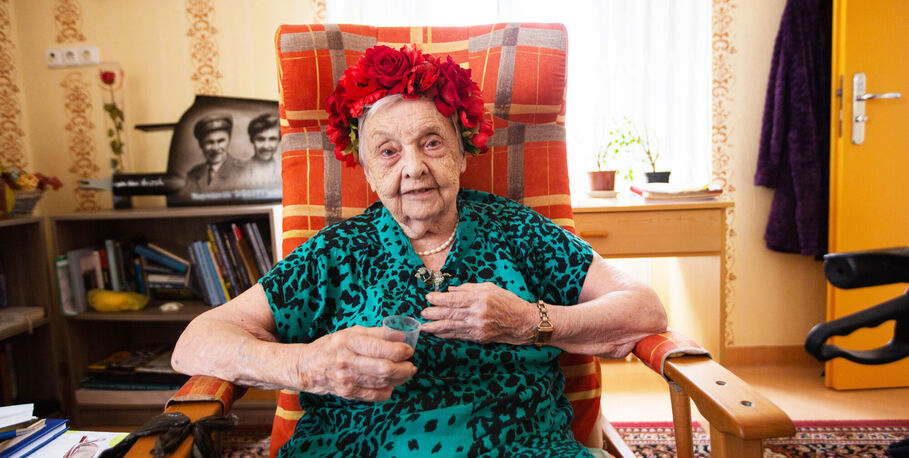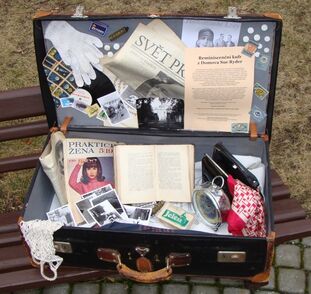The life story is the alpha and omega of the Psychobiographic model of care, aspects of which we use at Sue Ryder. It teaches us not to see “only” an older, 84-year-old gentleman who spends time on the hospital bed, but Mr. Jiří, who grew up in a house in Suchdol in Prague, loved his mum’s fruit dumplings and rode on the canoe. He got married, worked as a director in a factory, did carpentry, and began collecting jokes when he retired. We know that he did carpentry, so we find him an old chest of drawers which he can sand and varnish. Then what suddenly happens is that the gentleman who cannot stay standing forgets the pain while varnishing and can stand for 15 minutes!
The founder of this model of care is prof. Erwin Böhm, who lives by the motto “First wake the soul and then the body.” It is an internationally acknowledged model of care, currently used in German-speaking nations in geriatric care and geriatric psychiatry. The knowledge of the life story of our client is key also because every human being needs to feel a sense of usefulness. By knowing what our clients like to do, we can offer them individually tailored activities. Perhaps planting flowers, watching their favorite sport, or a trip to the place where they grew up.
The important thing is for our clients to feel comfortable. We cannot replace their home, but we try to get as close to it as possible and evoke its atmosphere. That is why clients can bring their belonging into their rooms – a lamp, an armchair, paintings, a coffee cup, photographs, their own bed linens… To the clients and their loved ones, I try to explain the importance of the “life story” and the personal belongings that they can bring into their room.
Thanks to biography, also we at Sue Ryder are so much richer in terms of information and experiences. Sometimes, their memories are classes of history and geography to us. Also, the current situation when we must abide by certain precautions due to the possible infection by COVID-19 has become important in understanding the lives of our clients. Many of them experienced the war or the inability to carry out their profession due to the communist regime. A sentence recently spoken by one of our ladies remains in my mind: “Don’t be scared. We have food to eat, we can go out on the terrace into the sun and we can manage without visits. The war really was much worse.
You can also support this way of caring for the elderly. Thank you.



